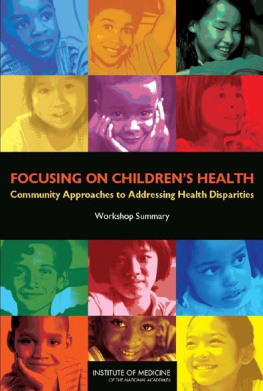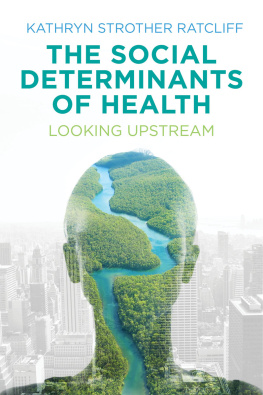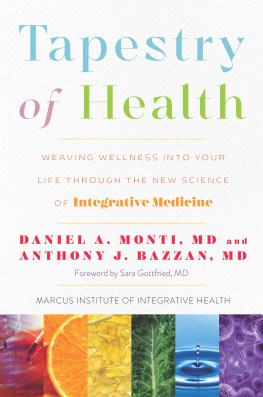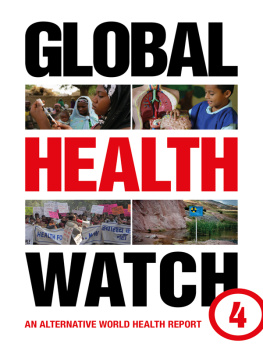Daniel E. Dawes - The political determinants of health
Here you can read online Daniel E. Dawes - The political determinants of health full text of the book (entire story) in english for free. Download pdf and epub, get meaning, cover and reviews about this ebook. year: 2020, genre: Politics. Description of the work, (preface) as well as reviews are available. Best literature library LitArk.com created for fans of good reading and offers a wide selection of genres:
Romance novel
Science fiction
Adventure
Detective
Science
History
Home and family
Prose
Art
Politics
Computer
Non-fiction
Religion
Business
Children
Humor
Choose a favorite category and find really read worthwhile books. Enjoy immersion in the world of imagination, feel the emotions of the characters or learn something new for yourself, make an fascinating discovery.

- Book:The political determinants of health
- Author:
- Genre:
- Year:2020
- Rating:5 / 5
- Favourites:Add to favourites
- Your mark:
- 100
- 1
- 2
- 3
- 4
- 5
The political determinants of health: summary, description and annotation
We offer to read an annotation, description, summary or preface (depends on what the author of the book "The political determinants of health" wrote himself). If you haven't found the necessary information about the book — write in the comments, we will try to find it.
The political determinants of health — read online for free the complete book (whole text) full work
Below is the text of the book, divided by pages. System saving the place of the last page read, allows you to conveniently read the book "The political determinants of health" online for free, without having to search again every time where you left off. Put a bookmark, and you can go to the page where you finished reading at any time.
Font size:
Interval:
Bookmark:
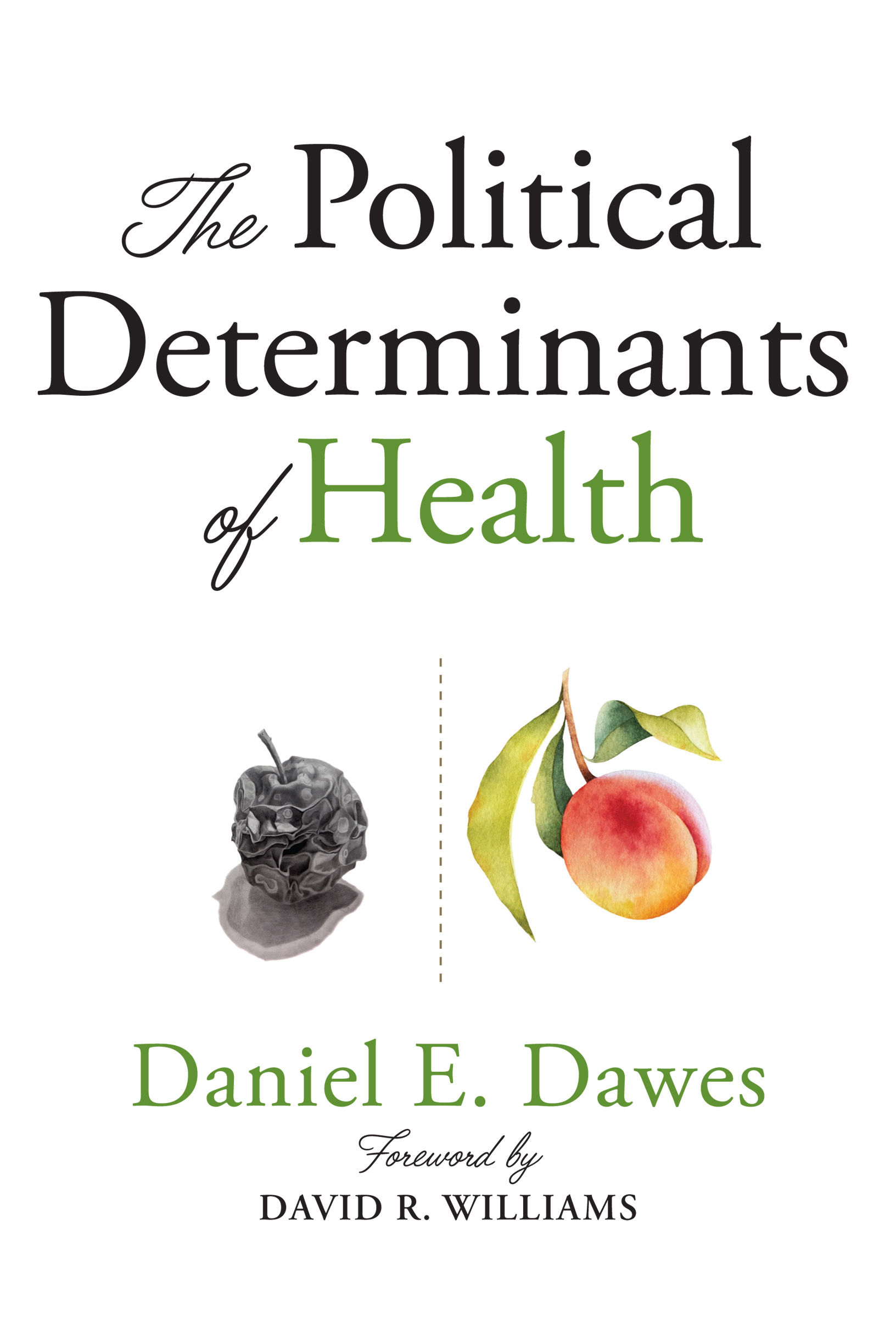
Daniel Dawess groundbreaking and illuminating work on the political determinants of health will change how we think about the drivers of our health and well-being. It is one of the most important books in health policy to be written in years. T HOMAS A . L A V EIST, PhD, Tulane University School of Public Health and Tropical Medicine
Daniel Dawes makes an engaging and important contribution to the health equity discourse with this book. He is also one of the few people in the country who could make this contribution. Because Dawes has been intimately engaged in the workings of government, he has a deep firsthand understanding of the political determinants of health. Moreover, he has a sweeping view of the historical movements that have contributed to the complexities of the American health care system. Dawes brings all of these threads to bear in this book and manages to make them relevant to the health equity movement today. D AYNA B OWEN M ATTHEW, JD, PhD, University of Virginia Law School
Daniel Dawes insightfully argues that we have to be mindful of more than the social determinants of health. More specifically, he indicates that the political determinants of health are actually far more impactful and can be far more insidious when not properly addressed, given that the American political process is the foremost avenue for implementing change. He demonstrates that many challenges recognized as social determinants are the result of political determinants. I commend Professor Dawes for not only creating a detailed framework that outlines the political determinants of health but also providing us with timely enlightenment about the challenges that we are facing. D AVID R. W ILLIAMS, PhD, MPH, Harvard T.H. Chan School of Public Health
Daniel Dawes presents another thought-provoking book showing us why addressing social determinants of health, while critically important, is merely nibbling around the edges of the problem. This book lays the groundwork for a transformation in how we think about advancing health equity by tackling the political determinants of health. B RIAN S MEDLEY, PhD, American Psychological Association
I have used Daniel Dawess prior work, 150 Years of ObamaCare, in my classes for the past three years. The book provided the students with a solid foundation and important insight into the history of the Affordable Care Act and the US health equity movement. Dawes has now followed that with another groundbreaking book. In The Political Determinants of Health, he unveils a trailblazing model built on the latest evidence, clearly identifying the factors vital to any effective effort to address health inequities. The political determinants of health are key to understanding the myriad factors that contribute to inequities faced by underserved and marginalized communities. And they highlight a basic realitythat public health is inherently political. Dawes presents a road map for addressing the factors at the root of health outcomes in this country. This engaging book is a must-read for community members; policy makers; health professionals; social services professionals; behavioral health, public health, and health care leaders; advocates; academics; and future health professionals. M ARTHA M OORE- M ONROY, MA, Mel and Enid Zuckerman College of Public Health, University of Arizona
Politics shapes policy and policy impacts health. This text takes an insightful look at politics as a societal factor that determines public health. It is an essential read for anyone who strives to make the United States among the healthiest nations. G EORGES C. B ENJAMIN, MD, American Public Health Association
The social determinants of health were an important advancement in our understanding of health. Now Daniel E. Dawes takes our understanding even further by developing a multidisciplinary framework explaining how policy and politics are tremendous drivers of the social conditions that affect all communities in a positive and negative way. Indeed, to truly address health, mental health, and substance use inequities, we need to understand their origins and their impact on the equitable distribution of opportunities and resources. The Political Determinants of Health does just that! O CTAVIO N. M ARTINEZ Jr. , MD, MPH, Hogg Foundation for Mental Health, The University of Texas at Austin
This book shines a light on one of the most important aspects of modern life that impacts our nations health. The role of politics and how it can diminish or worsen health equity has not been fully articulated in such a cohesive manner. This book will not only become an important guide for understanding health equity in America but will also serve as an essential tool for academic training and mentoring in higher education. M ARIO H ERNANDEZ, PhD, University of South Florida
Daniel E. Dawes elucidates a critical front in the drive to advance health equity: political determinants of health. Wise public policies and public support are essential to dismantle the structural drivers of inequities and create payment reforms that support and incentivize the tailored care that reduces health disparities. M ARSHALL H. C HIN, MD, MPH, University of Chicago Pritzker School of Medicine
According to the World Health Organization, the distribution of money, power, and resources at the global, national, and local levels is what ultimately shapes our health and survival. This puts health, health care, and health equity squarely in the political domain. By shining a powerful light on the political determinants of health, Dawes compels us to face critical drivers of health and well-being in the United States today. L AUDAN A RON, MA, Urban Institute
Daniel E. Dawes continues to disrupt dominant narratives in this timely, groundbreaking book. So much of what creates and determines health happens outside of the doctors office and hospital walls. Dawes pushes us all to move beyond our comfort zone of solely elevating the social and structural determinants of health and helps us to better understand the political drivers that produce optimal health for some and inequities for others. A LETHA M AYBANK, MD, MPH, Chief Health Equity Officer and Vice President, American Medical Association
Daniel Dawes forces a conversation that we can no longer afford to ignore with this impressively original and powerful book. In The Political Determinants of Health, readers will be challenged, motivated, and inspired to adopt a more expansive view of the role that political determinants play on our nations health. Arguably the most important book written on the driving force that has prevented us from realizing health equity in America and around the world. P ATRICK J. K ENNEDY, former congressman, founder of The Kennedy Forum, author of A Common Struggle: A Personal Journey through the Past and Future of Mental Illness and Addiction
I was immediately struck by Daniel Dawess insights in The Political Determinants of Health. This new concept will deepen the space loosely captured by structural determinants of health with a more foundational anchor. M ARGARET P. M OSS, JD (Hidatsa/Dakota), Director, First Nations House of Learning; School of Nursing, University of British Columbia
In his latest book, Daniel Dawes, a leader on health inequalities in the United States, takes a critical look at the work on the margins of the social determinants of health. He pushes back, arguing that political determinants of health are the fundamental issue, requiring a global answer to begin to achieve health equity. Im looking forward to sharing this book with my students. C AROLYN A. P OINTER, JD , Southern Illinois University School of Medicine
Font size:
Interval:
Bookmark:
Similar books «The political determinants of health»
Look at similar books to The political determinants of health. We have selected literature similar in name and meaning in the hope of providing readers with more options to find new, interesting, not yet read works.
Discussion, reviews of the book The political determinants of health and just readers' own opinions. Leave your comments, write what you think about the work, its meaning or the main characters. Specify what exactly you liked and what you didn't like, and why you think so.

